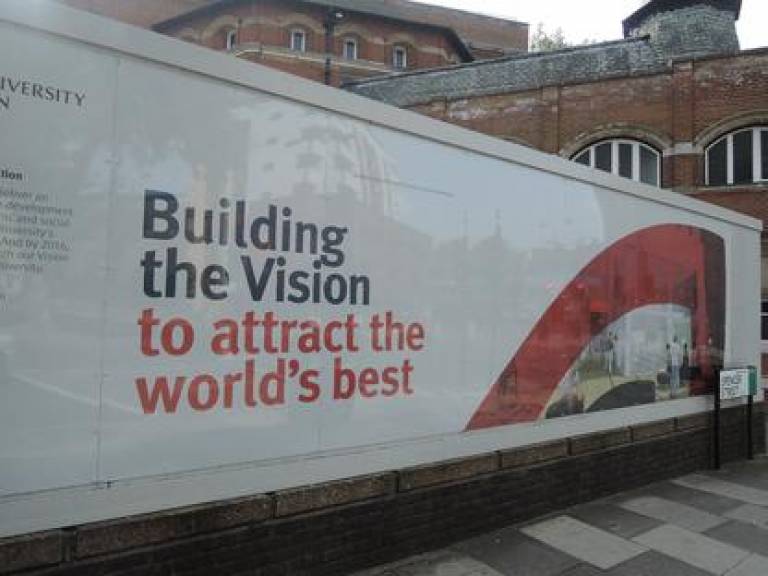Interim research findings: university spatial development and urban regeneration
26 March 2015

New university developments are moving away from out of town campuses and focusing on integrated urban sites with good access to amenities and affordable housing. There are also high expectations of universities to lead the way in realising flagship developments which exemplify best practice in urban design, environmental and social sustainability. But universities are complex organisations and such projects require strong leadership, good communications, and solid financial underpinning to be successful.
These are among the findings generated by 18 months of independent comparative research by Dr Clare Melhuish on university-led urban regeneration, which are summarised in a set of nine bullet points issued by the UCL Urban Laboratory today.
It include insights into the following key issues which universities and their external stakeholders, including local authorities and communities, have to address in spatial development projects:
Funding; governance and planning; academic planning; site characteristics; planning and regeneration contexts; masterplanning and design; briefing and appointments; community relations and engagement; translation into place and construction dynamics
Dr Melhuish said: 'Universities negotiate visions of their own institutional identity and future trajectory through academic planning, but spatial developments give visual and material form to those visions for generations to come; that is why it's so important to plan carefully and get them right'.
The research has incorporated an overview of university spatial development projects around the world, and in-depth case studies of Durham University's Queen's Campus in Stockton, Newcastle University's Science Central development, Cambridge University's North West development and a set of three US examples: University of Pennsylvania, Columbia University and New York University.
The selected case studies were identified as major research institutions with global reach, located in contrasting urban contexts. The research demonstrates the impact of public funding cuts and intensifying international competition as key factors leading universities to invest in spatial expansion, and delivers insights into the institutional policies, visions, and processes involved in implementing major development plans. It further highlights the complexity of the urban and planning contexts which inform them, and of the impacts and projected impacts which they have on existing sites and communities from a regeneration perspective.
An extended summary of the interim findings is available online.
The full case studies will be made available later this year.
Links
Contacts
- Dr Clare Melhuish
- Jordan Rowe (for media enquiries)
 Close
Close

